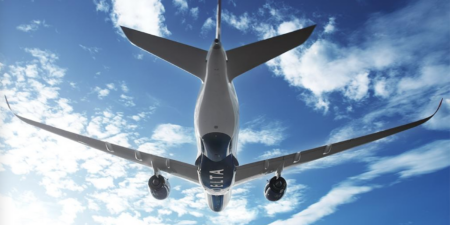Almost nine out of ten German aviation industry companies regard increasing pressure on pricing as their main challenge, with 78% also have difficulty in managing the trend towards fixed-price bids. These enterprises are called upon to maintain a price-efficient and fast production operation, but projects are becoming evermore complex and individualized an extraordinarily difficult situation for the industry. And the pressure from airlines on aircraft manufacturers and other smaller companies further up the supply chain will only continue to grow in the coming years. In particular it is the medium- and smaller-sized firms that are most in danger of being plunged into turmoil, should they fail to thoroughly scrutinize their working methods and processes. This situation has been revealed by a joint study conducted by Staufen AG in partnership with the German Aerospace Industries Association (BDLI). More than 100 of the sector’s top managers took part in the survey.
Solving acute problems
The operations side of these enterprises sees them confronted with diametrically opposed challenges. For example, there is an increase in the number of individual projects in which customers are submitting belated change requests. At the same time, growth in the industry is prompting airlines to push for a reduction in the timeframe between placing an order for an aircraft and its delivery. The ensuing reduction in material lead times constitutes a central challenge for almost eight out of every ten aviation companies. Both aspects are difficult to reconcile with customer requests for changes being raised late in the process and with the demand for consistent quality.
This is a situation in which Tier 1 suppliers in particular are suffering, because they are increasingly operating as system suppliers and every last-minute customer intervention creates disruption in their production processes. Almost half of Tier 1 suppliers perceive this to be a top challenge, compared with 28% of OEMs and 25% of Tier 2 suppliers.
While it may be true that these enterprises usually do succeed in satisfying their customers’ demands, this is only because they are experts in solving acute problems. However this type of work focused as it is on quickly finding solutions to current challenges demands a great deal of energy and is frequently associated with an extraordinarily high level of expense. Consequently there is a need to implement long-term measures and to optimize processes right across the value creation chain with the aim of becoming more flexible, more cost-efficient and faster.
Recaro as the paradigm
One highly important step in this journey especially for aviation industry suppliers is shop-floor management, which can ensure permanent transparency within production, optimum utilization of capacities, highly exact scheduling of production processes, as well as quality improvements. At Recaro Aircraft Seating shop-floor management is regarded as a core component for success and it is being practised in all the company’s production sites worldwide.
At first glance the measures introduced by Recaro Aircraft Seating appear rather simple mundane even. For example, a large magnetic board in the plant entrance hall displays figures relating to aspects such as project statuses, quality, and safety in the workplace.
This information is complemented by brief daily pre-shift meetings with the management staff, which means is that the directors and team leaders at Recaro are being returned to the place where the actual value creation takes place: the shop floor. From this vantage point they are able to identify problems at an early stage, and to solve any problems in partnership with the workers. The directors and team leaders can also function as mentors or coaches to their staff.
“We work closely with over 100 airlines as well as with the two major airplane manufacturers. Within this environment, the wishes of our customers are becoming even more individualized and varied, and we are finding that change requests are being expressed later and later, often right in the middle of the development and production process. This results in an enormous level of complexity for us, and highly flexible and highly efficient processes are called for”, explains Dr Mark Hiller, CEO and stockholder of Recaro Aircraft Seating. “Shop floor management aids us in creating transparency and improving our working processes.”
More than half of all German aviation industry suppliers are now deploying shop floor management within their production operations. However, in many companies this is only taking place at the lower management levels, leaving a large amount of potential for executive management to be included in these processes.
Tier 2 manufacturers are lagging behind
Officially, many traditional lean management methods are being practised by many enterprises, but in reality they are not rigorously implemented. For example, half of suppliers are still foregoing measures aimed at organizing the value creation chain more efficiently. In particular, Tier 2 manufacturers are lagging behind.
In addition to lean production, there are other aspects crucial for success in the aviation sector. For example, a similarly structured level of engineering is at least as important. Three things are necessary in this respect: firstly, structured project management; secondly, small-scale synchronized work packages; and thirdly, a reliance on variable, modular development processes and products. The latter aspect enables a response to last-minute customer requests, whereby it is only necessary to modify individual modules.
Outlook
Aviation industry suppliers have recognized that they have to improve their processes. The survey results highlight how many companies have already clearly defined the next steps. The focus here is on project management and process orientation.
What is clear is that it will take more than a few months to complete the transition, and that traditional types of companies must undergo considerable changes. So it is all the more urgent to begin the implementation of these measures as soon as possible.
Harald Knoke is head of the aviation business unit at the Staufen AG management consultancy




